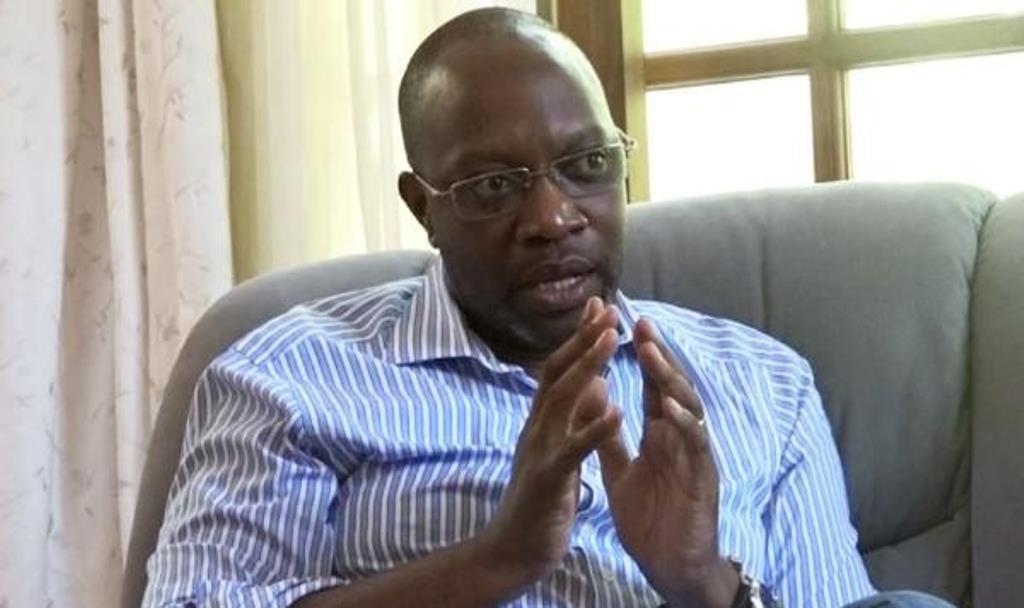AfricaPress-Tanzania: TANGA Cement, listed on the Dar es Salaam Stock Exchange (DSE), has reduced its pre-tax losses dramatically to 63m/- last year.
The firm, which trades as Simba Cement, has not issued dividend for almost five years. It managed to reduce losses to 63m/- last year from 13.8bn/- in the previous year, thanks to prudent measures to improve treasury management.
Simba Cement Chairman Mr Lawrence Masha attributed the decrease in loss before tax to mainly the increase in operating profit, decrease in foreign exchange and fair value losses which are related to the US dollars denominated loan for the new kiln production line.
“The outstanding balances on term loans were reduced through payment of instalments in 2020 and improved treasury management, including but not limited, to hedging strategies and strict control over work capital facilities,” Mr Masha said in statement published in the DSE website.
However, the firm recorded a net loss after tax of 2.1bn/- last year which was significant improvement from 11.9bn/- recorded in 2019. The net loss increased due to deferred tax credit of 1.47bn/- compared to 1.95bn/- in the previous year.
Mr Masha said his firm remains positive about this year despite the very competitive landscape and the impact of Covid-19.
“Simba continues to be committed to its sales, logistics and cost optimisation initiatives as it seeks to enhance value for its stakeholders,” he said.
The government initiatives to spur economic growth through infrastructure development and promotion of local industries are expected to boost local cement output and consumption while curbing the influx of cheap imported cement.
“With Tanzania remaining a significant player in the East African construction market, cement output is anticipated to increase and the Group is well positioned to take advantage of the growth opportunities in the regional market,” Mr Masha said.
Simba cash generated from trading activities improved by 12 per cent to 47.7bn/- from 42.7bn/- recorded in 2019. The net cash flows from operations have also increased by 6.0 per cent to 42.8bn/- from 40.6bn/- recorded in 2019.
The net cash flows from operations, and the Earnings Before Interest, Taxes, Depreciation, and Amortisation (EBITDA) performance are testament to the Group’s improved operational business fundamentals.
On dividend, Mr Masha said they maintained its position to maintain cash and “not pay dividend to its shareholders” so as to remain sustainable and be able to weather current economic challenges contributed by Covid-19 and other factors.
“The Board aims to continue committing available current cash resources to the operational and debt service commitments…,” he said.
However, the firm will evaluate the financial performance throughout this financial year when considering the future dividend declaration. Group’s sales revenue decreased marginally by 4.0 per cent, to 213bn/- from 221bn/- achieved in 2019.
The gross profit decreased by 1.0 per cent to 54.2bn/- from 54.6bn/- achieved in 2019. The gross margin increased by 3.0 per cent mainly due to the savings realised in the cost of production in line with the management’s commitment to improving company’s financial performance.
The Group remains optimistic of the positive impact of infrastructure development plans under the government’s Development Vision 2025 programme and expects the projects to continue gaining momentum in this year.
“The Group remains committed to supporting the government initiatives in growing the Tanzanian economy,” Mr Masha said.
Simba has taken reasonable measures to mitigate the impact of Covid -19 on its operations and remains confident with the initiatives taken by the government to combat the spread of coronavirus and stabilise the economy.
Chairman Masha said Simba has capacity to meet a significant share of the cement demand in the country and remains committed to production of superior cement products.






